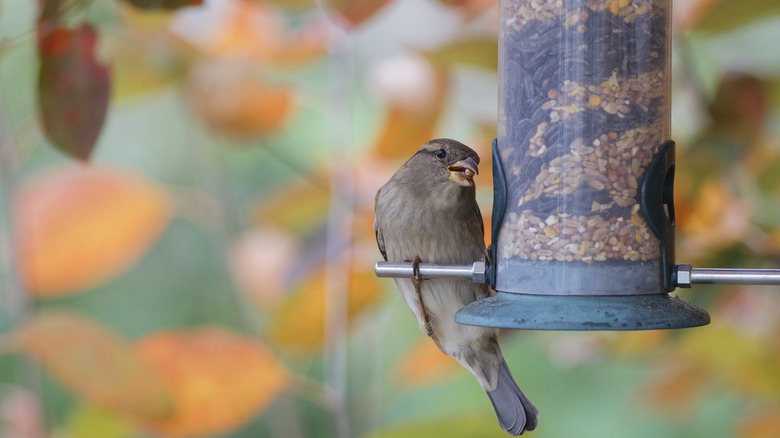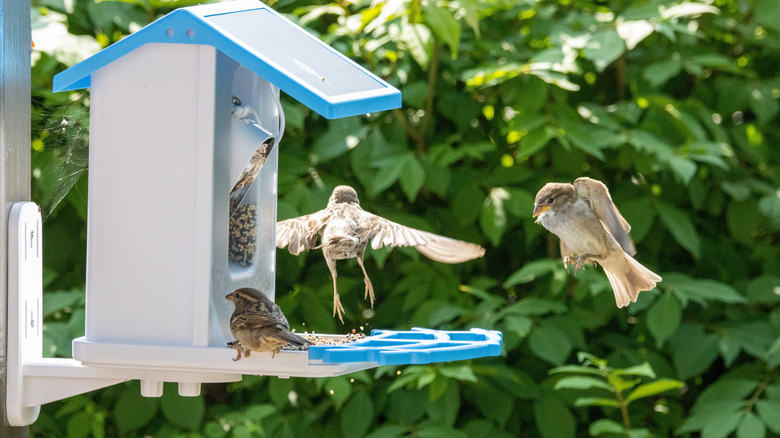Bird Lovers Rejoice: The Everyday Ingredient That Will Attract More To Your Yard
If you dream of having a yard filled with birds and their joyful songs, but seeds aren't cutting it, fear not. The answer might be right inside your fridge. Hard cheeses offer great sources of protein and fats that birds need to sustain their metabolisms. Birds aren't necessarily picky eaters when it comes to taste, but they have an impressive ability to discern what is worth eating. They need small amounts of calorie-dense foods throughout the day as they metabolize around 10,000 calories in just 24 hours.
Cheese can be especially helpful during the colder months. Their little bodies work overtime to keep warm, and the extra sustenance goes a long way. The boost of fat and protein can keep them satiated for a little longer, allowing them to draw out their energy. Still, moderation is vital when it comes to dairy, so leftover cheese rinds are another suitable option.
Birds are naturally foragers, and backyard bird feeders can successfully meet their needs, attracting a host of avian friends. One important note is that birds eat what they're used to, so introducing cheese might not get their attention right away. Give it time, and once they start eating it, they will quickly realize that it's a filling, efficient food. While you're at it, make your own mug-bird feeder to complete your yard. Wrens, sparrows, thrashers, and robins are just some of the birds that have been known to enjoy cheese.
The best and worst cheeses for birds
Birds are not able to produce lactase, the enzyme responsible for digesting lactose. What this means practically is that part of the food will move through their digestive systems unchanged. This won't affect the bird much in small amounts, but large amounts of unprocessed lactose can cause severe digestive issues. As far as dairy products go, cheese has relatively low lactose levels. Still, hard cheeses, cheddar and parmesan, and semi-hard cheeses, like provolone or Swiss, are pretty low in lactose and therefore safer bets. The best way to feed these to birds is to grate them into tiny pieces and scatter them throughout the birdfeeder.
There is another consideration beyond lactose levels: hardness. Soft cheeses are generally higher in lactose, but also are wetter. This makes it harder to ensure moderation, and when birds consume too much high-lactose food in one go, they can develop severe diarrhea. These dairy products might even get oils on the birds' feathers, making it hard, if not impossible, to fly and damaging their insulation. Some cheeses, like mozzarella, are perfectly low in lactose, but their soft nature presents too much of a risk to include in your birdfeeder.
Be similarly careful with parmesan, as only the cheese labeled Parmigiano-Reggiano is the real deal. Other cheeses labeled simply "parmesan" could actually contain a host of extra ingredients and preservatives since there are very few regulations surrounding the food.


